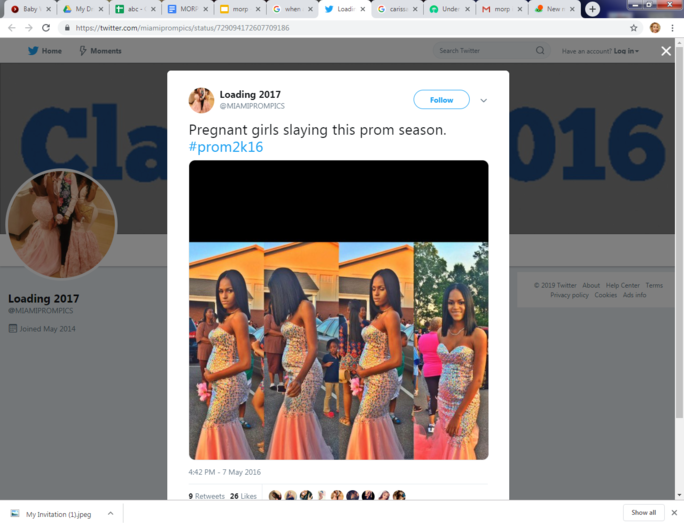Baby With a Baby Bump,A Teen’s View of Teen Pregnancy
The first time meeting my boyfriend’s whole family within 10 minutes the interrogation begins, the first question; “What school do you want to go to?” the second “Whats your family like?” and third, the most dreaded and awkward, “When do you want to start a family?”
Although uncomfortable the question is completely valid, teen pregnancies often come from new high school couples who could engage in… “it.”
About half of all high school students have had sexual intercourse during their lives. Other data indicates that approximately one in eight teenage females will become pregnant before they reach age 20.
Nationwide, 30 percent of teens report that their parents have never spoken with them about sex. Even though 70 percent have, what makes this number concerning is that recent data indicates the approximate 40 percent of high school students that have had sexual intercourse, lack education on the matter.
Sometimes the only conversation teens have about pregnancy is what happened on the last episode of Teen Mom on MTV.
Pop culture creates teen pregnancy to be almost as taboo as people with 20 children. The shows almost glorifying the seemingly 10 girls in the world who are adolescent mothers, create the message that this isn’t a common problem. That it doesn’t happen to many girls and if it does, they get a show.
So, the question asked (that made me want to crawl in a hole and never see the sun again,) was naturally an obvious concern for his family.
Our Sophomore year a Junior accidentally got pregnant, she was instantly pulled from her classes and the boyfriend left also. Swarms of people rushed to social media to inquire and suck gossip on the matter. She had the baby in a happy and loving home and the two parents are engaged to be married. It is more common than we think if it happened at our own school.
Births to women ages 15-19 and 20-24 in the U.S. declined to “historic lows” in 2011, declining to 31.3 births per 1,000 teens, said researchers at the U.S. Centers for Disease Control’s National Center for Health Statistics.
This number is low and each student thinks of course it couldn’t be me, but I bet that Junior said the same.
Maybe it takes those cringing questions to spark conversation (and fear) about a common issue among teens.






